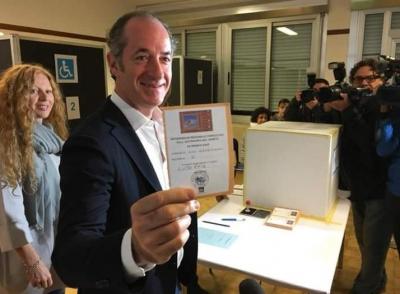Italian PM rejects Veneto's special status request

ROME - Italian Prime Minister Paolo Gentiloni has rejected the demands of Luca Zaia, the governor of Veneto, for special autonomous status following the referendum last week. The government is planning to open a discussion on autonomy with the Lombardy and Emilia-Romagna regions on Nov. 6. The overwhelming majority of “yes” votes in the referendum have meant that discussions on a path forward are necessary. By contrast, the demands of the Veneto region continue to create friction between the government and this prosperous northern province. The votes cast were legal, but not binding in Rome.
Five regions in Italy, including Sicily and Sardinia, already have special autonomous status, and Veneto has asked if it too can alter the constitution to allow for more freedom. Gentiloni’s response to this request is that “the government is open to a confrontation of merit. Can some functions can be made more efficient from a more autonomous role of the region? It is possible, rather, it is probable, and a discussion is useful.”
While this may seem like a positive response, Gianclaudio Bressa, the Under Secretary of Regional Affairs, has spoken about the government’s resistance towards further autonomy for Veneto: “we can not open dialogue on the basis of requests such as those on fees or hiring of teachers formalised by the Veneto junta that the Constitutional Court has already rejected in 2014.”
As a part of their demand for increased liberties, the Veneto region has asked to be allowed to spend 90 percent of all the taxes raised in its territory, a demand which has met with resistance from the government. One concern with allowing this change to proceed is that Italy’s less developed southern regions may not receive as much funding if the richer provinces like Veneto can keep more of their own tax intake. The government’s response to these demands has shown that there are clear limits about what they will or will not discuss.
hl


